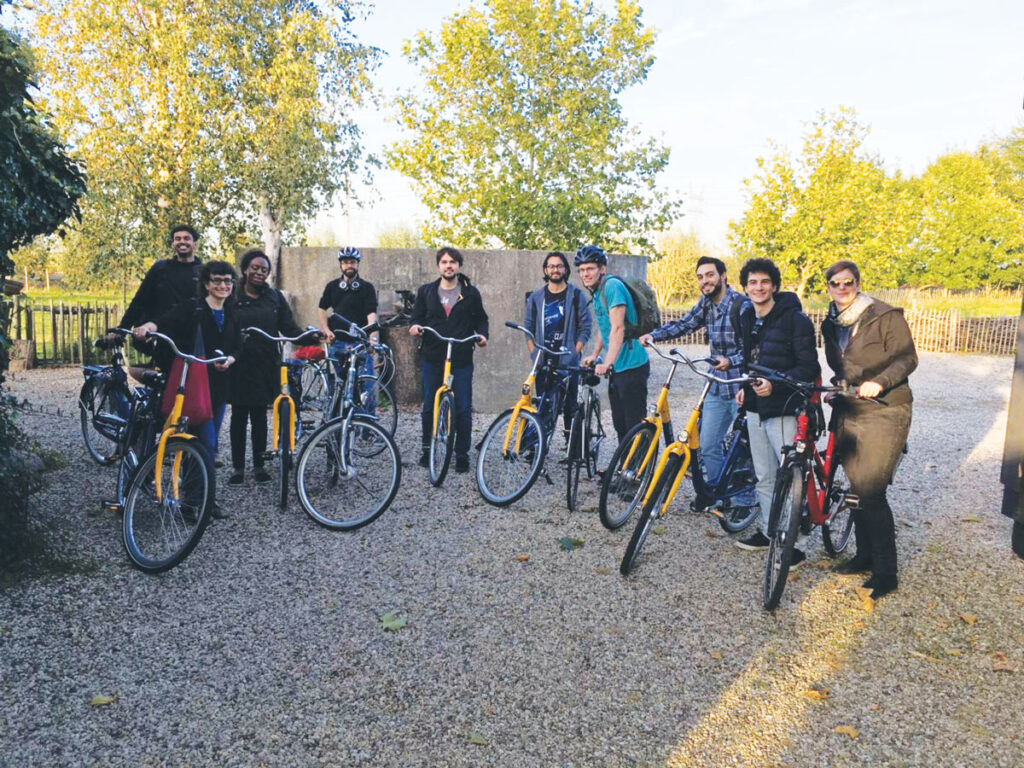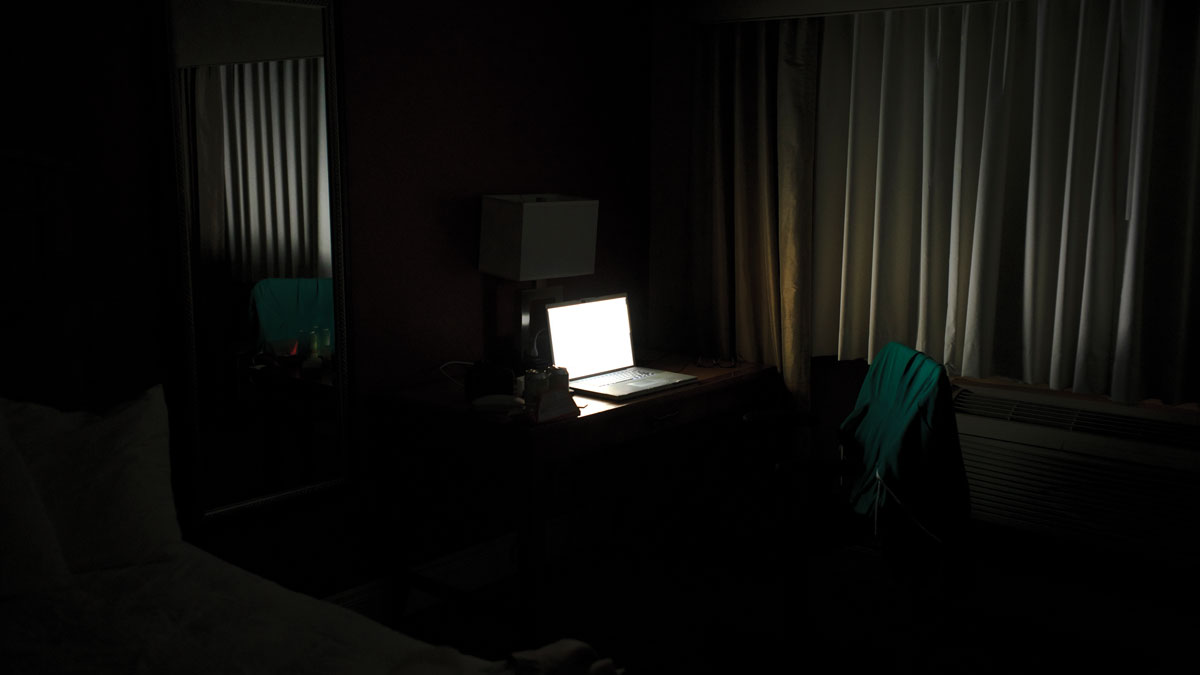For Nicole Gasparini, the constant pressure to keep working manifested early in graduate school. Long hours reading papers, analyzing data, and coding models felt like the norm in academia. There was simply the expectation that everyone would overwork. “I was so stressed and nervous,” she said. “Nearly every single day, I got sick in the bathroom.”
Gasparini is a geomorphologist and professor at Tulane University in New Orleans, and even now, 2 decades after defending her doctoral thesis, it’s still tough for her to shed the mindset of overworking. “I have tenure, and I still work myself way too hard,” she said.
The flexibility and freedom that some say characterize academic pursuits often come with a hidden price tag: overwork. Many academics feel pressure to put in far more hours than are healthy or even necessary for success.
In light of data linking overwork with adverse mental and physical health effects, some scientists are beginning to acknowledge—and address—the far-reaching repercussions of potentially harmful work habits. And many try to encourage their students to internalize a safer and more balanced work life, even if doing so runs counter to a mindset that’s deeply ingrained in the culture of higher education.

The Tolls of Overwork
Across a wide variety of careers, researchers have demonstrated again and again the detrimental effects of working substantially more than a standard 40-hour week.
For starters, overwork has been linked to diminished productivity: An oft-cited study of British munitions workers in the early 20th century showed that when employees logged more than 49 hours per week, their hourly output started to taper off.
Overwork takes a toll on mental health as well as on productivity: Longer working hours have been linked to increased rates of depression and anxiety. But academics often view personal suffering as a badge of honor, researchers found when they surveyed graduate students in the United Kingdom. One student reported, “There is a common belief…you have to suffer for the sake of your Ph.D.; if you aren’t anxious or suffering from impostor syndrome, then you aren’t doing it ‘properly.’”
Working much more than 40 hours per week has also been linked to increased mortality. A recent study conducted by the World Health Organization and the International Labour Organization reported that a higher-than-average workload—more than roughly 55 hours per week—results in higher levels of stress hormones that in turn trigger behavioral responses such as increased tobacco and alcohol use, unhealthy dietary choices, decreased levels of physical activity, and impaired sleep. Corresponding upticks in the rate of heart disease and stroke linked to those behavioral responses claimed more than 740,000 lives in 2016, the researchers concluded.
Recent trials of shorter workdays—around 6 hours, rather than the typical 8—have reported increased job satisfaction, reduced usage of sick leave, and higher worker productivity.
Despite the sobering data—and mandates such as the European Union’s Working Time Directive, which bans people from working more than 48 hours per week on average—overwork continues to proliferate. It’s been documented in fields as disparate as health care, finance, and teaching, but it’s not hard to see why it also readily crops up in academic settings.
A Culture of Overwork
Unlike many workers who have prescribed job schedules, researchers in academic settings generally aren’t expected to report to their proverbial desk by a certain time and stay there for a set number of hours. There’s accordingly no defined beginning and end to an academic’s workday, which means that it’s up to individuals to dictate their own schedule. That freedom could easily be viewed as a privilege—and it is, researchers such as Gasparini readily acknowledge—but it also comes with a catch: Academics are faced with a constant flood of work that’s seemingly capable of inundating a researcher’s time.
Academics typically take on a wide range of commitments related to research, teaching, and service. A researcher’s week might include everything from collecting data to writing a paper to teaching to mentoring students to applying for grant funding to serving on committees.
“You’re asked to do more tasks than you have hours for.”
A steady slew of responsibilities demand a scientist’s time and attention, said Sera Markoff, a theoretical astrophysicist at the University of Amsterdam. “You’re asked to do more tasks than you have hours for.”
Markoff estimated that she devotes between 50 and 60 hours each week to her job. She isn’t unique: A 2021 study conducted by the Organization for Economic Co-operation and Development found that nearly 80% of scientific researchers worked more than 40 hours per week.
The COVID-19 pandemic exacerbated the problem. A study of more than 150 academics found that people worked 3 more hours each week on average in 2020 compared with 2019. That bump in workload was mainly due to having to adapt to interacting with students remotely, the team concluded.
And though long work hours might seem par for the course for early-career scientists eager to prove themselves worthy of a permanent position, more senior academics aren’t immune to the problem of overwork. If anything, career advancement means more demands on one’s time, Gasparini said. There are suddenly committees to chair, new courses to develop and teach, and graduate students and postdoctoral scholars to mentor. And academics feel pressure to do everything, she said, because they often have a lurking sense that they could be replaced. (Far more Ph.D.s are minted each year than there are permanent academic positions.)
I was on campus not because my adviser told me to be there but, rather, because I had internalized that that’s what I needed to do to be a successful academic.
“Despite having to go to school until you’re 30 years old and then having to do God knows how many postdocs, you’re still disposable,” she said. “That makes you nervous.”
History offers some context for academics’ work habits. Markoff said that during the 17th and 18th centuries, when the Enlightenment helped define the modern-day concept of academia in the West, the gentlemen of leisure who populated scholarly circles were expected to make sacrifices for their profession.
“This was a calling, a vocation,” Markoff continued. Academics were expected to be devoted to their work because the pursuit of knowledge was seen as noble, she said, and relics of that sentiment no doubt persist today.
I can relate: When I was a graduate student in the mid-aughts, I spent more Saturdays at my desk than I care to admit. I was on campus not because my adviser told me to be there but, rather, because I had internalized that that’s what I needed to do to be a successful academic. My tendency to overwork was self-imposed.
Overwork does not underwrite all academic work cultures, of course.
“When I moved there from the United States, I was the only person working at night.”
As a self-described “American workaholic,” Markoff said she remembers being shocked when she first moved to Europe because her work schedule stood in stark contrast to that of her colleagues. “When I moved there from the United States, I was the only person working at night,” Markoff recalled.
Other researchers regularly left the office at 4:00 p.m. and did not come in on weekends, said Markoff. One scientist whose work she particularly admired maintained an extremely regimented schedule and never worked more than 40 hours per week. “It really rocked my brain,” she said.
Markoff’s European colleagues weren’t any less productive than their American counterparts, she soon realized—they just got their work done in a shorter span of time. Researchers focused on cognition have repeatedly shown that humans might be hardwired to work most productively for relatively short spurts of time—somewhere between 4 and 6 hours. (Anonymous surveys often reveal that workers log roughly 4 hours of productive work per day.)
Even after realizing the minimal productive payoff for overwork, however, Markoff admitted that she still works too much. “I can’t say no, and I take too many things on,” she said. However, she’s adamant about not expecting the same from her graduate students and postdocs. “I definitely don’t try to force that on my group,” she said. “I try to be very aware.”
Meanwhile, many early-career researchers carefully consider the negative repercussions of overwork as they navigate their career trajectories. “Early-career scientists are very concerned,” said Gasparini. Survey data confirm that sentiment: A recent poll conducted by Nature of more than 3,000 graduate students revealed that a lack of work-life balance was one of the main reasons respondents were unlikely to pursue a career in academia. One respondent put it plainly: “I don’t think I want this kind of life.” Fewer than half the students hoped ultimately to find full-time employment in academia, the poll revealed.
Luc Illien, a geophysicist at the GFZ German Research Centre for Geosciences in Potsdam, realized only over time that nonacademic pursuits actually advanced his enthusiasm and productivity at work. During his Ph.D. program, Illien would regularly work on weekends and bring research papers with him when he traveled. His academic life took precedence over everything else. “I was constantly thinking about it,” he said.
The upheaval caused by COVID-19 helped Illien realize that he was exhausted from the go-go-go pace of his work. “The pandemic helped me change my perception,” he said.
Illien began setting aside time to pursue interests that had nothing to do with his doctoral thesis, which focused on seismic observations of the critical zone. Devoting time to hobbies such as martial arts and filmmaking was a way for him to recharge and feel more prepared to do research. “I’m way happier, and I feel as productive,” Illien said.
Illien is not an outlier: Numerous studies have demonstrated that engaging in leisure activities boosts well-being, and having meaningful nonwork outlets has also been linked to gains in productivity-related attributes such as increased creativity. Today Illien does a combination of research, project management, and outreach, and he credits his filmmaking experience with helping him land his current position.
Such conversations are particularly important for women to hear, Markoff said, because women scientists can face additional pressures. “On average, women often end up being asked to do a lot more things,” she said. “When you’re one of the few women at a certain level, you get asked too much to be on all these committees.”
Women in the sciences also tend to encounter barriers to advancement. They are less likely than men to be credited with authorship on scientific papers. A 2023 report revealed that at Scripps Institution of Oceanography, women were systematically given less lab and office space than their male colleagues.
Some women choose to respond to inequity by working harder to compensate, Markoff said. “[Women] probably are harder on themselves because of the fear of being seen as lesser,” she said.
Researchers of color also end up shouldering outsize burdens in academia, and those additional commitments can lead to overwork. Asian, Black, Hispanic, and Native American faculty all spent significantly more time per week advising students than white faculty members did, a 2009 survey of more than 25,000 faculty members revealed. Such “invisible labor” is often just that when researchers are considered for tenure, academia’s equivalent of a job promotion. “You don’t have a metric for the type of service that I’m engaging in,” a Black female faculty member at a predominantly white institution told researchers in a study on gender and race in academia.
Change Is Afoot
Early-career researchers have begun speaking up about the culture of overwork in academia. Late in 2022, roughly 36,000 graduate students working across the 10 campuses of the University of California system went on strike.
“We are overworked and underpaid, and we are fed up,” Jamie Mondello, a graduate student worker at the University of California, Los Angeles, told the Los Angeles Times. The strike, the largest in higher education in American history, lasted more than 5 weeks and netted graduate student researchers and teaching assistants childcare subsidies and roughly 50% increases in starting pay, among other benefits. (The issue of workload was addressed in the University of California negotiations, but it pertained specifically to teaching duties rather than the research-based positions held by many graduate students.)
“I don’t want to have a heart attack at age 55.”
It’s up to researchers to change the culture of overwork in academia, said Gasparini, because universities benefit from the extra labor. “There’s no reason for a university to address this issue,” she said.
More senior faculty—many of whom have the privilege of a permanent position—should set an example for their graduate students and postdocs when it comes to healthy work habits, Gasparini said. In recent years, she has made a conscious effort to rein in her service commitments such as committee work. “I say ‘no’ more often,” she said. Saying no is not always possible, she admitted, and sometimes work that she’s truly passionate about—such as mentoring more junior researchers—gets pushed to the wayside. But dialing back work is necessary for personal health, said Gasparini, who has suffered from work-related panic attacks in the past. “I don’t want to have a heart attack at age 55,” she confided.
Inspired by other researchers, Gasparini is taking steps to ensure that her graduate students and postdocs are aware of the issue of overwork and feel empowered—and comfortable—eschewing a debilitating work schedule. For starters, she is open with her group about her own struggles. “I talk with my students about how hard it was for me in grad school and how I got sick all the time,” she said. “I don’t think there’s any reason to hide that stuff.”
Gasparini maintains a “group agreement” that she shares with her graduate students and postdocs. The document outlines expectations about work, among other topics, and notes that researchers are expected to take time off.
“I’m trying to find different ways to do things that I think are more supportive.”
This agreement is a living document, Gasparini explained, and the goal is to convey to junior researchers that they don’t have to sacrifice their mental or physical health to be successful scientists. The agreement is also an implicit attempt to provide a better experience in academia, she said. “I’m trying to find different ways to do things that I think are more supportive.”
Markoff is making similar efforts to normalize self-care. Prior to the pandemic, she took her graduate students and postdocs on group retreats, and she plans to resume the daylong outings. The meetups, which occurred off campus, often centered around discussions of personal development, career goals, time management, and mental health. “I started trying to be more open about the failures, the problems, the stress,” Markoff said.
It’s no secret that some researchers are choosing to leave academia. That attrition is occurring for a variety of reasons: high rates of exhaustion, low job satisfaction, and more lucrative opportunities in industry or the private sector, among others. But all too often, academics suffer in silence. “So many people are leaving academia,” Markoff said. “There has to be a discussion of why.”
And though acknowledging the issue of overwork in academia is an important first step, action needs to follow as well. Markoff for one is hopeful that change is afoot in academia, and she believes that the younger generation will lead the way. Early-career researchers are seeing firsthand the toll of unsustainable work habits on both the physical and mental health of their supervisors, and that’s not an existence they wish to emulate.
Many current graduate students count themselves among Generation Z, the cohort of people born between roughly the mid-1990s and 2010, and that group isn’t shy about demanding change, Markoff said. “Gen Z doesn’t put up with crap. They’re really challenging these things.”
—Katherine Kornei (@KatherineKornei), Contributing Writer


